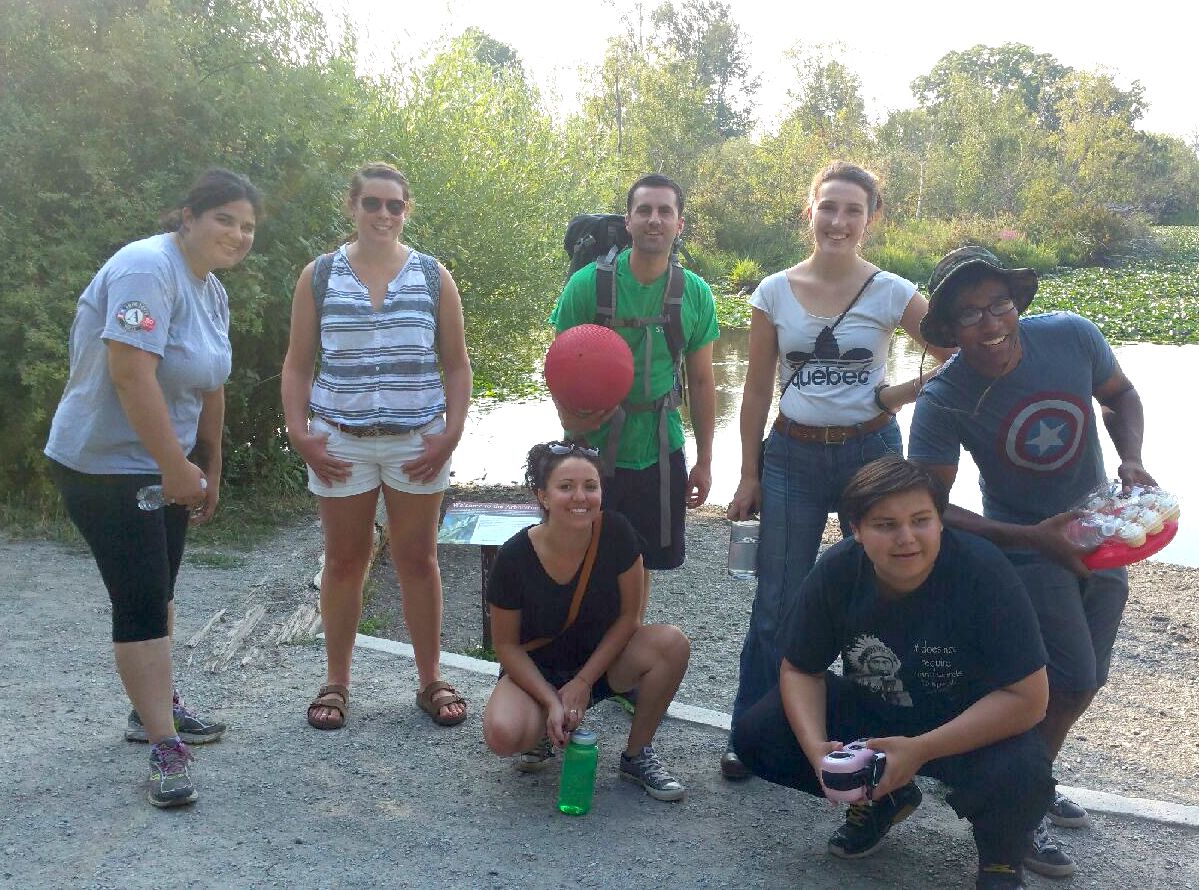Sound Youth VISTA is a program of YWCA of Seattle | King | Snohomish that places AmeriCorps volunteers at partner organizations in the greater Seattle area. Volunteers build the capacity of organizations that address poverty among family families and young people. We invited one volunteer, Marja Morgan, to write about what she’s learned during her year of service. Thanks to Marja for sharing her story! — Denise
Written by Marja Morgan, Independent Living Program Support Specialist for YMCA of Greater Seattle
As I hiked along the easy, fairly-flat trail in Mt. Baker-Snoqualmie National Forest, I felt consumed with my own problems. I thought being in nature would clear my head, but amidst the giant tree stumps and mini spring wild flowers, my mind inevitably drifted back to troubling thoughts of people far away. My mom, my dad, my brother, my ex-fiancé — all swirled in my head, stopping me from being present and enjoying myself. “What am I trying to find out here?” I wondered, “What am I looking for?”
I was about to find out.
A woman I didn’t know struck up a conversation with me on the trail, drawing me out of my own head. She started opening up and telling me all about various adventures in her life. She had lived and worked in England for some time, and then in Ireland for several years. She taught English in South Korea at a friend’s suggestion. Seemingly on a whim, she traveled from foreign land to foreign land. Her sense of adventure impressed me, and even made me a bit jealous; I aspire to be so courageous. After detailing a couple more international gigs, her tone became more serious.
“But when I came back to the United States a few years ago,” she said, “I struggled with poverty and homelessness.” This didn’t seem right. This didn’t fit in her story of successfully getting employment and housing everywhere she went in the world.
“What about your family?” I asked.
“Well, I really didn’t have one,” she said, and went on to explain that she had been a foster child growing up in the system.

We continued on the path and made it to our destination, the Big Four Ice Caves. I stood in front of the caves experiencing the cold breeze over my entire body. Her phrase echoed in my head, “Well, I really didn’t have one.” How could someone who thrived so well abroad have to struggle to survive when she comes “home”? It seemed unfair, and yet, from what I am learning in my service with AmeriCorps VISTA, it isn’t uncommon.
I serve at the YMCA of Greater Seattle Young Adult Services, supporting the Independent Living Program (ILP) that helps youth and young adults ages 15 to 21 who have aged out of foster care get assistance with their housing, employment, and education needs. The woman’s story made more sense when I began to reflect on the bigger picture context of the barriers former foster children face when they age out.
The Department of Social and Health Services (DSHS) recently published a report on Youth at Risk of Homelessness. The report details various factors that contribute to increased risk of homelessness for a youth who has aged out of foster care. The top risk factors include:
- the youth being a parent,
- past-year homelessness or receipt of housing assistance,
- the youth being African American,
- four or more placements in congregate care (such as group homes or residential placements),
- four or more changes in schools in the past three years,
- and four or more convictions or court proceedings.
As an adult who had previously been in foster care, that woman I met hiking had a roughly one in four chance of experiencing homelessness. More information on prevalence rates of homelessness and housing instability for that population is available through Northwest Foster Care Alumni Study as well as multiple other studies. About half the time, former foster care youth who experience homelessness end up being homeless more than once by age 26 (see the longitudinal Midwest Study for further information).
Looking at the research made me realize how lucky I am to have my family, even a family I complain about. My mom gave me a place to stay rent-free while I was looking for a job as an adult, my dad gave me money when I otherwise wouldn’t have made rent one month in college, my brother was also my roommate during a few times in my life, and my ex-fiancé helped get me into the housing program I’m currently living in. If I hadn’t had family support, it’s easy for me to see how vulnerable I would have been to homelessness.
Realizing my own privilege reminds me of why services through ILP are so crucial for young adults. A stable and supportive relationship with an ILP Resource Specialist can help former foster youth develop and hone necessary life skills to prevent or end homelessness. ILP staff partner with The Mockingbird Society and Treehouse to help improve foster children’s lives and end youth homelessness.
These programs are doing great work, but we all have to do our part, too. Here are some ways you can get involved and make a difference in the life of youth and young adults:
- Attend the 10th annual Foster Youth and Alumni Leadership Summit on Aug. 25 and 26 at the University of Washington’s Center for Urban Horticulture to hear from youth and community experts on ways to advocate for policy change to improve foster care.
- Volunteer your time! Connect with the YMCA’s volunteer coordinator, Molly Stutzman, to determine how your knowledge, skill set, and interests would best fit with the YMCA. She can be reached at mstutzman@seattleymca.org or 206.749.7551.
